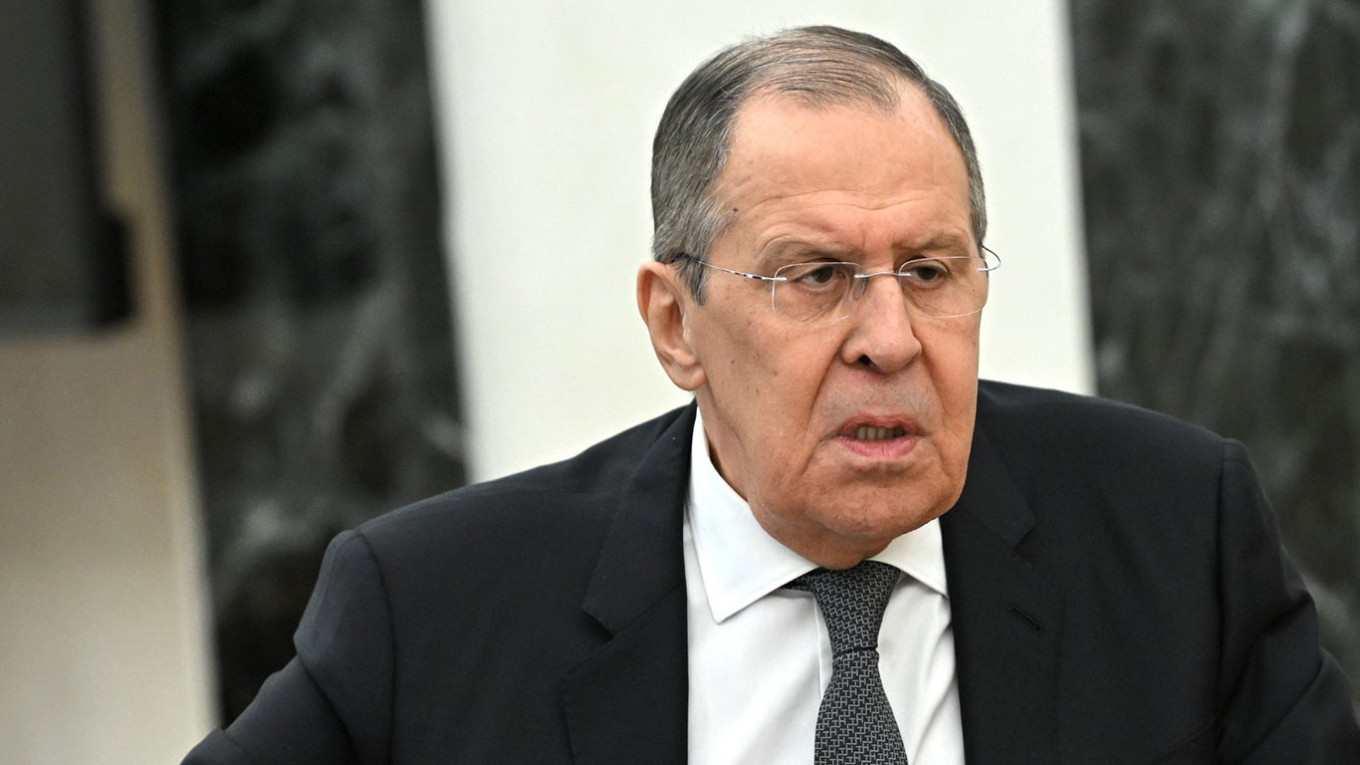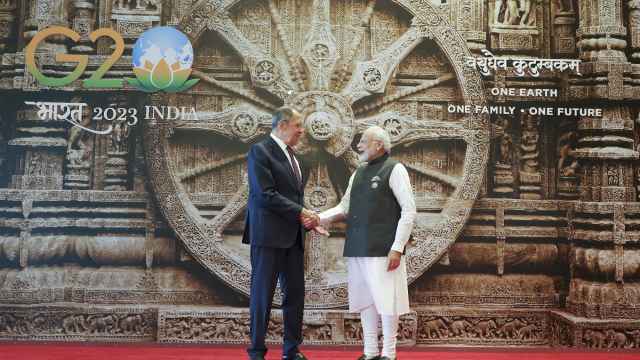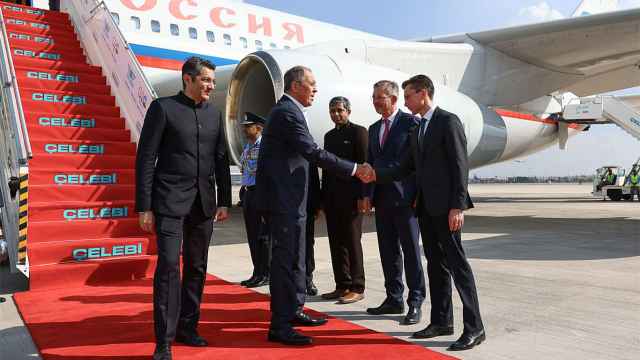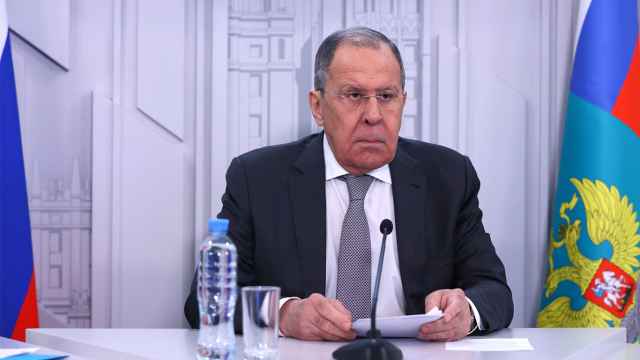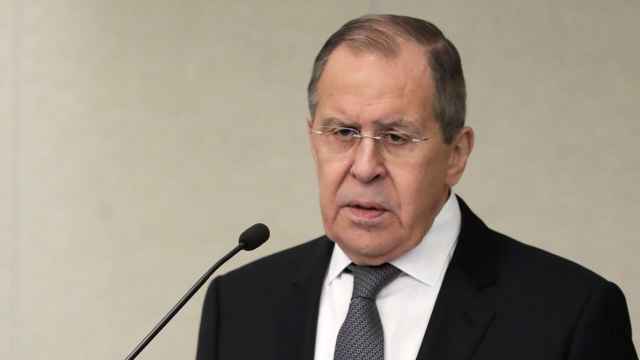Russian Foreign Minister Sergei Lavrov hailed Russia-India ties Friday as the Kremlin looks to draw closer to India following Moscow's break with the West over Ukraine.
The two-day visit to India follows Lavrov’s stop-off in China, where he spoke of the beginning of what he called “a multipolar, just, democratic world order.”
Lavrov’s presence in New Delhi highlights Russia’s top-level efforts to court India and prevent its diplomatic isolation amid the ongoing war in Ukraine.
"We appreciate that India is taking this situation in the entirety of facts, not just in a one-sided way," Lavrov said at a press conference ahead of talks with his Indian counterpart Subrahmanyam Jaishankar.
Like China, India has refused to criticize Russia’s invasion of Ukraine, with Indian delegations at the United Nations abstaining from recent votes to condemn Russia.
Although Indian-Russian diplomatic relations have been close since the end of the Cold War, experts believe India is looking for discounts on major Russian exports, including oil and gas.
“Russia desperately needs not just cash, but also long-term predictability for revenues from trading in Russian commodities,” analyst Dionis Cenusa at the Eastern Europe Studies Center, told The Moscow Times.
“The trip to India is a combination of looking for new markets and showing that the country is not isolated internationally,” he added.
Western financial sanctions have reportedly made it difficult for India to pay Russia for imports including arms, oil, rough diamonds and fertilizers.
The two nations look close to agreeing a rupee-ruble mechanism to circumvent Western sanctions that have cut Russia off from global payment systems, according to media reports. State-owned development bank VEB and the Reserve Bank of India (RBI) have “likely finalized” an alternative transaction system that will facilitate India’s continued purchases of Russian arms and energy, The Economic Times reported Thursday.
India remains reliant on Moscow for up to 85% of its arms, including some of its most technical and costly equipment like submarines, SU-30 fighter aircraft and T-90 battle tanks.
"We will be ready to supply to India any goods which India wants to buy,” Lavrov said Friday. “And I have no doubt that a way will be found to bypass the artificial impediments which illegal unilateral sanctions by the West create."
Lavrov met Indian Prime Minister Narendra Modi late Friday.
While China and India may be keen on striking some economic bargains, their willingness to show political support for the Kremlin is less clear. Ideas of a new “world order” being pushed by Russian officials will likely be met with apprehension in New Delhi and Beijing, where there is acute awareness of the risk of a Western backlash.
“Regarding any so-called 'new democratic' world order – I am not sure that such messaging will find much traction in India,” said Anit Mukherjee, an expert on Indian foreign policy at the S. Rajaratnam School of International Studies.
Western countries have been stepping up their engagement with India in recent days, apparently urging the country to refuse to provide Russia with an economic lifeline.
U.S. Secretary of State Antony Blinken spoke by telephone with Indian Foreign Minister Jaishankar late Thursday to discuss "the worsening humanitarian situation in Ukraine.” And Lavrov’s arrival in India coincided with U.K. Foreign Secretary Liz Truss’ plane touching down in New Delhi.
AFP contributed reporting
A Message from The Moscow Times:
Dear readers,
We are facing unprecedented challenges. Russia's Prosecutor General's Office has designated The Moscow Times as an "undesirable" organization, criminalizing our work and putting our staff at risk of prosecution. This follows our earlier unjust labeling as a "foreign agent."
These actions are direct attempts to silence independent journalism in Russia. The authorities claim our work "discredits the decisions of the Russian leadership." We see things differently: we strive to provide accurate, unbiased reporting on Russia.
We, the journalists of The Moscow Times, refuse to be silenced. But to continue our work, we need your help.
Your support, no matter how small, makes a world of difference. If you can, please support us monthly starting from just $2. It's quick to set up, and every contribution makes a significant impact.
By supporting The Moscow Times, you're defending open, independent journalism in the face of repression. Thank you for standing with us.
Remind me later.



